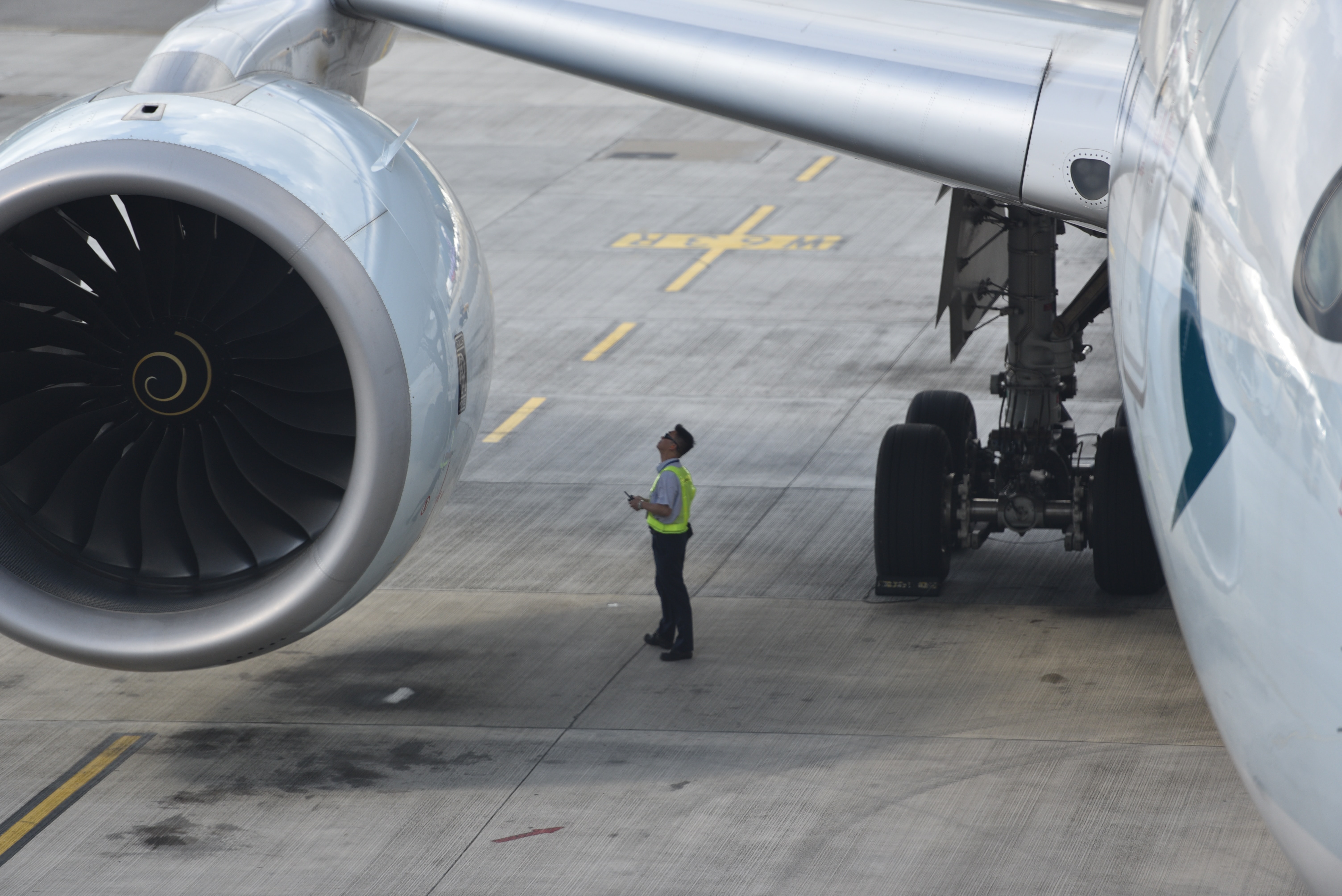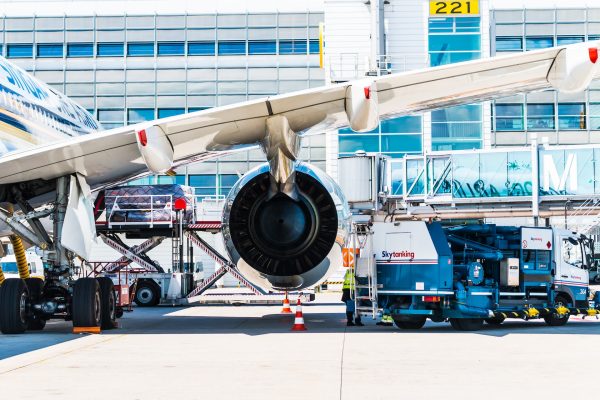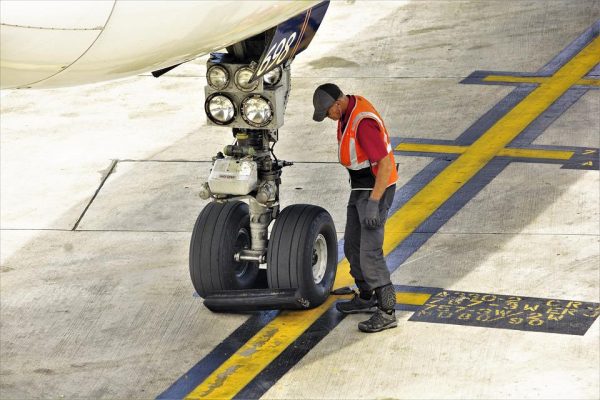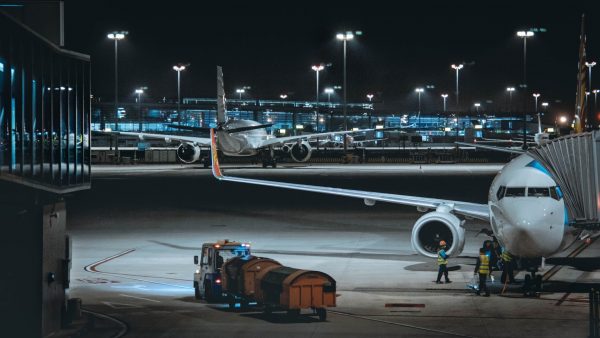
Completing an aviation safety course allows you to launch your career in aviation by learning how to analyze and prevent errors and any hazards in what is known as risk management. What’s more, you will be getting into one of the most rewarding careers within the aviation industry, since you will be ensuring safe travel for all passengers and crew.
So, if you are interested in starting your career or improving your opportunities in the aviation safety sector, you have come to the right place. Here we will share details on what aviation safety involves, what you should learn to have a successful career in the area, and the best aviation safety courses for you to get that knowledge and develop the skills required to be a top aviation safety professional.
Safety in the Aviation Industry
Safety is the top priority in the aviation industry, so aviation safety professionals will always find great opportunities. As described by the International Air Transport Association (IATA), “the shared goal is for every flight to take off and land safely.”
Also, the International Civil Aviation Organization (ICAO) makes it clear that safety is everyone’s responsibility, and they are constantly working in close collaboration with the entire air transport community, to further improve aviation safety and standards.
According to data shared by IATA, “in 2018, the fatal accident rate was 0.28 per 1 million flights, the equivalent of one fatal accident for every 4.2 million flights.” So, we can easily affirm that safety management systems within the industry are actually doing a good job. And this takes us to the next point.
Aviation safety management is a function at the organizational level that focuses on guaranteeing that all possible risks are identified, evaluated, and actions are taken to either eliminate or mitigate them. This is achieved by implementing a series of principles, frameworks, processes, and measures to prevent accidents, injuries, and other adverse consequences that may be caused by using a service or a product.
Therefore, a safety management system (SMS) represents all those principles, frameworks, processes, and measures. In other words, a safety management system is a group of processes applied across the entire organization with a specific structure, to ensure the decisions made every day are putting safety as a top priority.
In general, aviation safety management systems enable organizations within the industry to offer products or services at the highest level of safety while maintaining smooth operations.
Now that you have a better idea about what aviation safety involves and how risk management or safety management is carried out in aviation, you may be wondering how to get started. Well, the truth is that there are different career paths that can take you into a career in aviation, including in the safety management area.
In short, what you actually need is to develop risk management and executive management skills, and one of the best ways to do that is to take training courses covering those areas.
Fortunately for you, there are quite a few of them, and we will share those we consider great options.
Top 8 aviation safety courses
While not a fully comprehensive one, the following list of online courses includes what we consider to be the best ones for you to get started in the world of safety management in civil aviation. Yes, it may be a little biased because we are proud of the quality of our courses, but we will share some aviation safety courses out of our offer because we really want to help you in the best possible way.
How to Recognize the Risk of a Serious Aircraft Accident?
We decided to start the list with this free course that covers the mindset of an expert in safety and accident investigation because we believe it is a great way to understand the importance of safety in the aviation industry, and how relevant a safety manager can be for any organization within the industry.
State Safety Programme for Director Generals and Senior Managers by the UK CAA
The Civil Aviation Authority (CAA) in the UK makes clear that the Civil Aviation Authority’s Director General and Senior Managers within CAA including Accident Investigation Authorities and Government Aviation Departments play an essential role in conducting an effective State Safety Programme (SSP).
Consequently, the UK CAA offers a State Safety Programme course to help senior managers in the UK to understand what they are entitled to do and their responsibilities in the SSP.
In other words, any senior manager with functional operations in the UK can benefit greatly from taking this course.
Human Factor Topics in Safety Investigations
During a serious incident investigation, it is very important for the safety investigator to have at least a basic understanding of the human factors that may have been involved in such an incident and how those human factors may have impacted the outcome of the event.
While human error may not be completely eliminated, the idea of this safety training is to provide future investigators with the knowledge and skills needed to assess the human factors to understand why something wrong happened and what could be possible measures to improve safety performance in the future.
During a serious incident investigation, it is very important for the safety investigator to have at least a basic understanding of the human factors that may have been involved in such an incident and how those human factors may have impacted the outcome of the event.
While human error may not be completely eliminated, the idea of this safety training is to provide future investigators with the knowledge and skills needed to assess the human factors to understand why something wrong happened and what could be possible measures to improve safety performance in the future.
Safety Investigation Process and Management
Safety investigation is a vital aspect of safety assurance because accident investigation provides essential information to understand why the accident occurred and how it can be prevented in the future. Moreover, this information allows managers to set a precedent that can be used for safety promotion in order to create a safety culture within the organization.
This safety training program covers the evolution of this kind of investigation as well as the protocols surrounding the process based on ICAO standards. It also offers best practice guidelines to manage investigations and comply with safety regulations.
Safety Management System for Ground Handling Service Providers
Air navigation service providers are not the only ones with an important role in aviation safety. Ground handling service providers also need to develop a safety culture to increase flight and workplace safety for passengers, flight crew, and their own ground staff.
Ground operations include passenger and cargo handling, cleaning, towing, refueling, and catering. Therefore, this safety training will help providers and their staff to improve their safety performance while benefiting from an effective Safety Management System (SMS).
Safety Management System (SMS) Implementation
Safety management systems are essential in achieving a safety culture. However, an SMS will not be effective if it is not properly implemented. Achieving SMS implementation will allow the organization to cover regulatory requirements and exceed expectations.
This safety training will be providing detailed explanations so you can learn how to navigate the different phases and steps as well as the skills required to manage the workload associated with the implementation of the system.
Aviation Safety Investigation
This is perhaps the most comprehensive of all training courses focused on safety investigation. The fact is that, as we mentioned before, safety information obtained from an accident or incident investigation is vital to understanding why they occur and creating a safer industry for everyone.
From safety investigation history and future threats to everything you need to conduct a thorough investigation, this course will give you all.
Understanding Dangerous Goods
Aviation companies do not only work in the passenger transportation area, but also in air cargo transportation. Of course, most cargo is handled without much trouble, but there are some goods that require special care when preparing for transportation and during the transportation itself. These are called dangerous goods.
While Dangerous Goods (DG) immediately evoke the likes of explosives and similar, the truth is that even some food is sometimes considered DG. This course will help you identify dangerous goods as well as get a comprehensive overview of Dangerous Goods and the challenges faced when transporting them, how to overcome those challenges, and the responsibilities around these operations.
Aviation Safety FAQs
After sharing the top 10 courses covering aviation safety topics, it is a good idea for us to answer a couple of the common questions people ask about aviation safety. We hope this will help you to clarify any doubts you may still have.
Having a business management diploma might allow you to start working with a safety manager and learn the safety aspects along through experience.
However, becoming an aviation safety expert may require more. Becoming an expert involves a combination of knowledge, skills, and experience that may take years to achieve.
Yet, completing any of the diploma programs focused on safety management could be a good way to start. Then, with patience and persistence you should gain knowledge and industry practice to become an aviation safety expert.
Safety and security are two terms that are sometimes used interchangeably, yet they are two different things, especially in aviation.
Safety in aviation refers to ensuring flight and ground operations at the airport are completed without damage or loss. This includes any incident or accident caused by human factors or by machine failure.
On the other hand, security in aviation refers to guaranteeing every single person, as well as the infrastructure involved in aviation operations, is protected from criminal activity. This includes securing the data of passengers, crews, ground staff, and any other employee from cybercrime, securing people and aircraft from intentionally-caused crashes and other incidents, as well as from terrorist attacks.
Determining the best aviation course for you comes down to having your objectives clear. The best course will be the one that addresses most if not all of your needs and gives you the knowledge, skills, and tools for you to achieve the goals you have set for the future of your career.
For example, if you want to become a safety manager, a course like the SMS implementation would be extremely beneficial for you.
However, if your ultimate goal is to become a safety investigator, then the Aviation Safety Investigation course is actually the best aviation course for you.
In summary, take some time to set your objectives, analyze what you may need to achieve them, then find the course that matches those needs, and you will be on the right career path.






